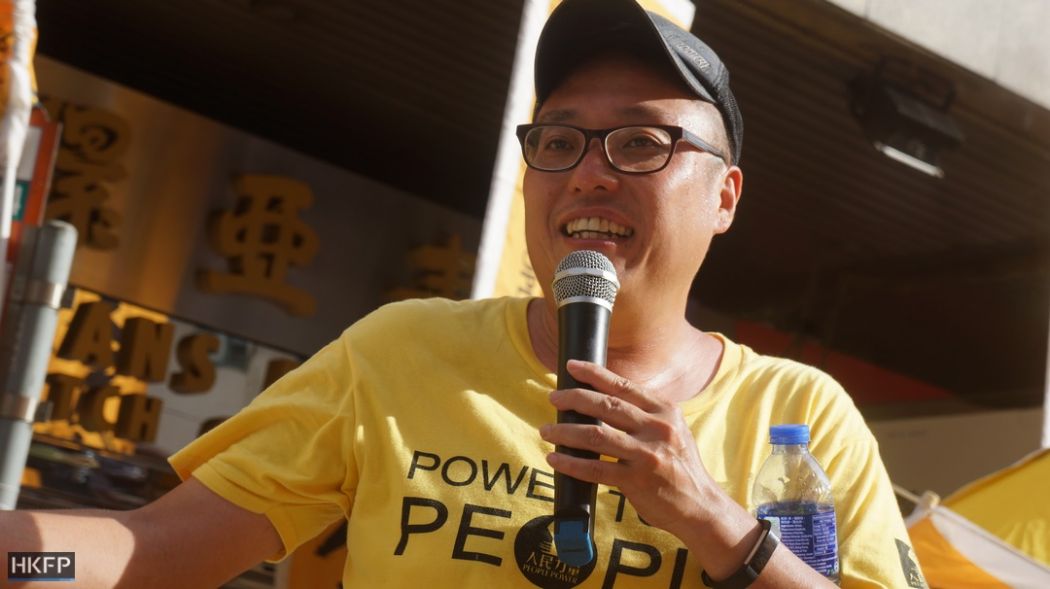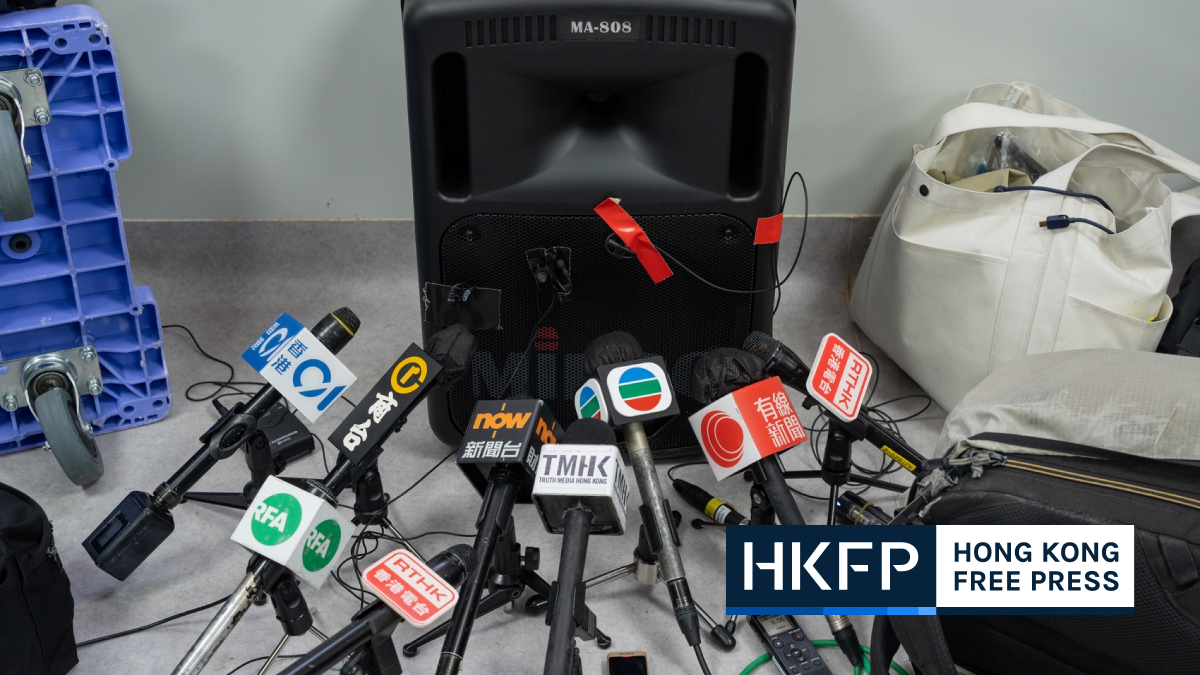Hong Kong pro-democracy activist “Fast Beat” Tam Tak-chi has launched a bid to appeal against his conviction and 40-month sentence for 11 charges last April, including “uttering seditious words.”

The DJ and former vice-chair of the pro-democracy party People Power was arrested in September 2020. He was found guilty of 11 charges in the District Court last March. High Court judges Jeremy Poon, Derek Pang and Anthea Pang handled Tam’s application for a leave to appeal on his conviction and sentence on Tuesday.
They said they would decide whether to grant the leave to appeal in nine months.
The activist, who was 50 at the time he was sentenced, faced 14 charges, including “uttering seditious words,” disorderly conduct in a public place, conspiracy to utter seditious words, holding or convening an unauthorised assembly, incitement to knowingly take part in an unauthorised assembly, and refusing to obey an order given by an authorised officer.
He was accused by the prosecution of making baseless accusations against the Hong Kong police, and insulting them by describing them as “damned black cops.”
During his trial, Tam also stood accused of chanting the controversial slogan “liberate Hong Kong, revolution of our times,” a phrase which was ruled as capable of inciting others to commit secession in the city’s first national security trial.
| Charge | Verdict | Sentence | Suspended? |
|---|---|---|---|
| 1. Incitement to knowingly take part in an unauthorised assembly | Guilty | 2 years | No |
| 2. Uttering seditious words | Guilty | 15 months | No |
| 3. Disorderly conduct in a public place | Guilty | 1 month | No |
| 4. Uttering seditious words | Guilty | 15 months | No |
| 5. Disorderly conduct in a public place | Not guilty | n.a. | n.a. |
| 6. Holding or convening an unauthorised assembly | Guilty | 18 months | No |
| 7. Disorderly conduct in a public place | Not guilty | n.a. | n.a. |
| 8. Refusing or wilfully neglecting to obey an order given by an authorised officer | Guilty | HK$5,000 fine | n.a. |
| 9. Uttering seditious words | Guilty | 15 months | n.a. |
| 10. Uttering seditious words | Guilty | 18 months | n.a. |
| 11. Conspiracy to utter seditious words | Not guilty | n.a. | n.a. |
| 12. Uttering seditious words | Guilty | 18 months | No |
| 13. Uttering seditious words | Gulity | 18 months | No |
| 14. Uttering seditious words | Guilty | 18 months | No |
Philip Dykes, the barrister who represented Tam on Tuesday, said that publishing seditious publications should be a common law offence and common law principles should be applied. Therefore, the prosecution should have proven the defendant had intended to incite violence, which was not proven in the trial.
He added that if the intention to incite violence was not part of the offence, the offence imposed a disproportionate restriction on freedom of speech and was unconstitutional.
Statutory offences
However, Anthony Chau, the prosecutor who represented Hong Kong’s Department of Justice (DoJ), said the sedition charges were statutory offences and that it was not necessary to prove an intention to incite violence. During the development of the sedition law, Chau added, the intention of threat to injury had been removed as an element of the sedition offence.
Jeffrey Tam, another barrister representing Tam, said it was arguable whether slogans said by Tam had only one meaning. Experts who testified during Tam’s trial also agreed that the slogans were “vague.”
“Different audiences might have different understandings,” Tam said, adding that the context should be looked at.
Sedition law
Tam became the first person to stand trial under the colonial-era sedition law after the city’s Handover from Britain to China in 1997. The legislation is different from the Beijing-imposed national security law.
The sedition law, which falls under the Crimes Ordinance, criminalises incitement to violence, disaffection and other offences against the administration, whereas the national security law, enacted in June 2020, outlaws subversion, secession, collusion with foreign forces and terrorist acts.
Correction 5/7/2023: An earlier version of this article incorrectly stated that Tam Tak-chi was found guilty last April, when it should have been last March. We regret the error.
Support HKFP | Policies & Ethics | Error/typo? | Contact Us | Newsletter | Transparency & Annual Report | Apps
Help safeguard press freedom & keep HKFP free for all readers by supporting our team
























